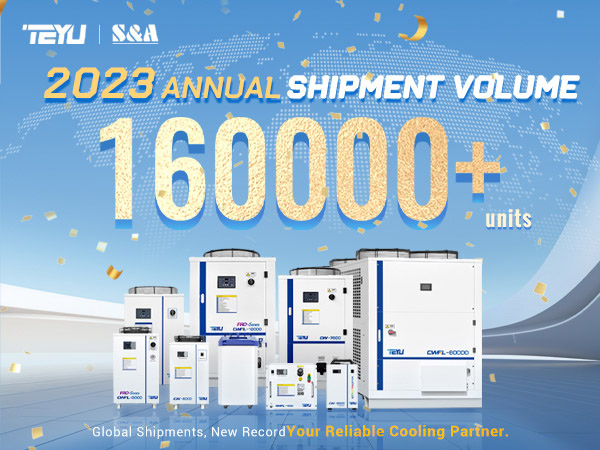TEYU Chiller Manufacturer’s laser chillers provide precise cooling for 3W-60W UV lasers in industrial SLA 3D printers, ensuring temperature stability. E.g., the CWUL-05 laser chiller effectively cools an SLA 3D printer with a 3W solid-state laser (355 nm). If you're seeking chillers for industrial SLA 3D printers, pls feel free to contact us.
Stereolithography (SLA), or resin 3D printing, is an additive manufacturing process that uses a UV laser to cure liquid resin into hardened 3D objects layer by layer. SLA 3D printers typically use the following types of UV lasers:
1. UV Gas Lasers
Gas Lasers such as 325 nm helium-cadmium (HeCd) lasers and 351-365 nm argon ion lasers were used in early SLA 3D printing equipment for precise resin curing but gradually have been replaced by more efficient lasers due to their high maintenance costs and limited lifespan.
2. UV Diode Lasers
UV diode lasers commonly emit ultraviolet light (405 nm) in SLA printers. They are compact, energy-efficient, and relatively inexpensive, making them ideal for consumer-level desktop SLA 3D printers and small-scale industrial applications..
3. UV Solid-State Lasers
UV solid-state lasers are widely used in high-end industrial-grade SLA 3D printing applications. Usually operating at 355nm, they generate high-energy UV laser that effectively cures liquid photosensitive resin through photopolymerization, quickly solidifying the object's structure. These lasers offer advantages such as high power density, precise beam focus, wavelength stability, and long lifetime.
Large industrial SLA 3D printers typically use high-power UV lasers, and the performance of their optical components and laser gain medium is highly sensitive to temperature changes. To prevent overheating during high-power laser output, these SLA printers are usually equipped with laser chillers to cool the lasers and optical parts, ensuring equipment stability and improving print accuracy and quality.
TEYU Chiller Manufacturer Offers Precise UV Laser Chillers for SLA 3D Printers
To address the overheating challenges of UV solid-state lasers in large-format SLA 3D printers, TEYU Chiller Manufacturer offers advanced temperature control solutions. TEYU's RMUP-series, CWUL-series and CWUP-series laser chillers provide efficient, stable, and highly precise cooling for 3W-60W UV lasers, with cooling capacity ranges from 380W to 4030W while temperature stability of ±0.08°C, ±0.1°C and ±0.3°C. For example, TEYU laser chiller CWUL-05 can be utilized to cool an SLA 3D printer equipped with a 3W solid-state laser with a 355 nm wavelength. If you're seeking reliable chillers for industrial SLA 3D printers, please feel free to contact us.

We're here for you when you need us.
Please complete the form to contact us, and we'll be happy to help you.
Copyright © 2025 TEYU S&A Chiller - All Rights Reserved.